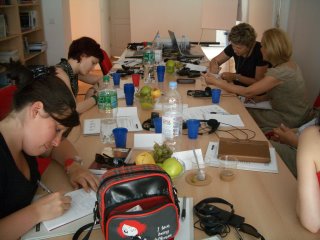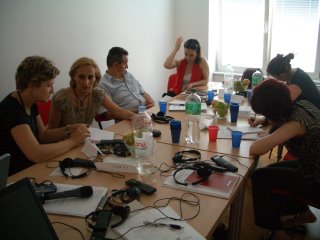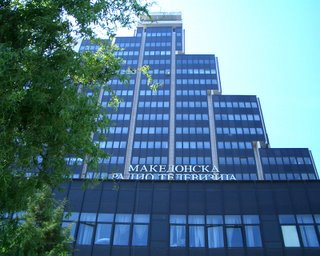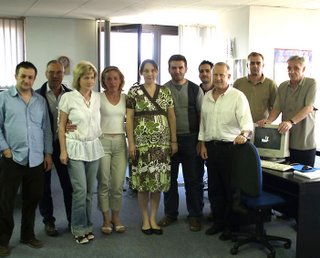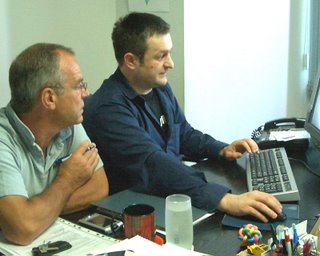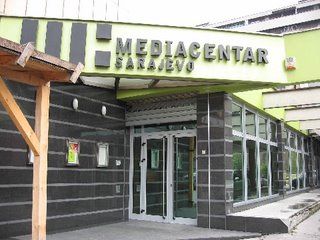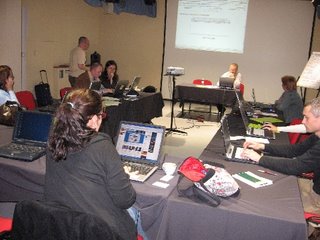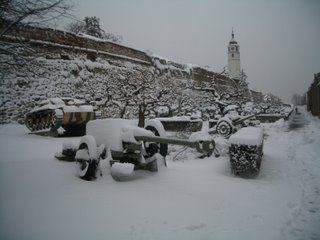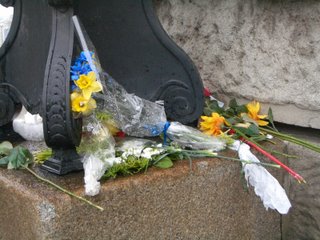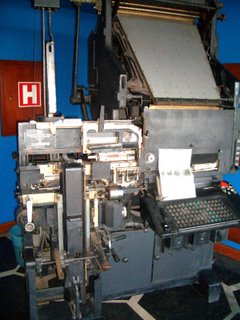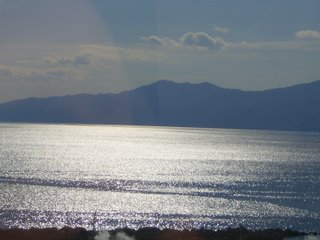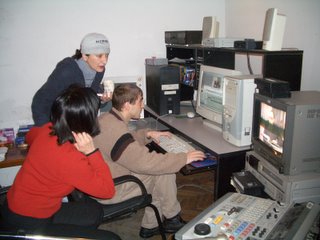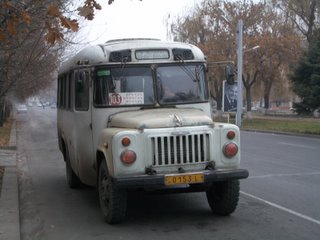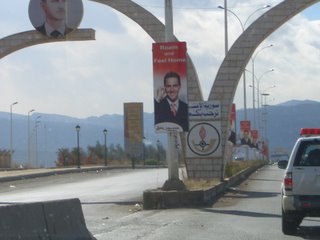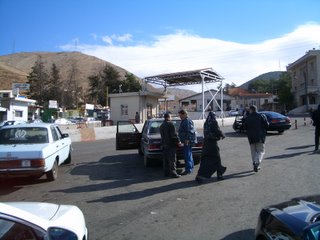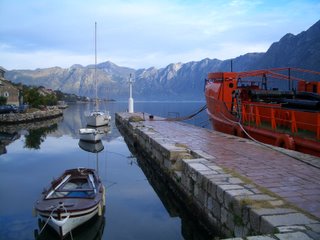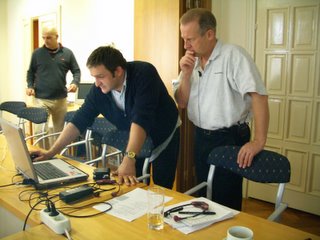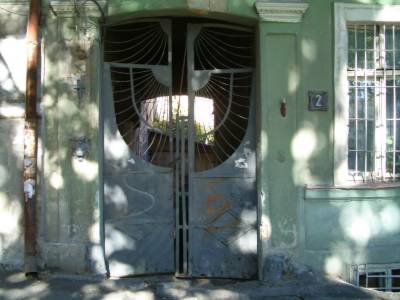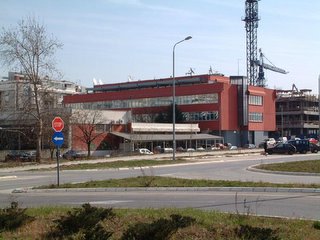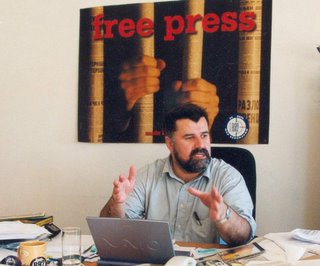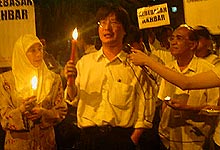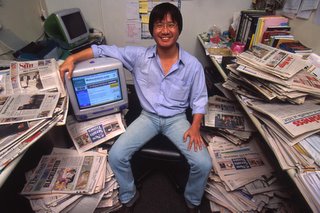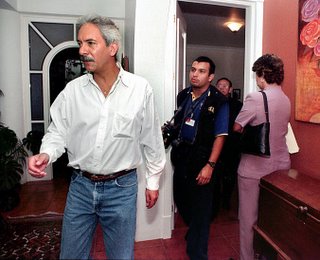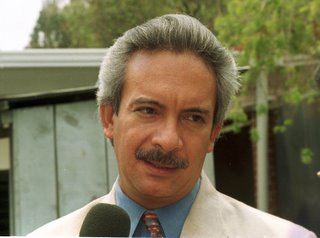New Media Strategies - Sarajevo
The editorial proposition, sustainable business plan, workflows and technical details for an imaginary radio station and internet site for Zagreb, Croatia, were pieced together during a 48-hour interactive workshop on New Media Strategies at the SHC HQ in
They looked at issue-led journalism and how a responsible media operation should inform the public debate so that the audience can make educated choices in their lives.
They also explored how to create hundreds of original stories a year in order to free them from a dependency on news conferences and the wires.
They examined a variety of business models as they looked at ways of generating revenue, including advertisements, subscription, barter deals and sponsorship.
Their brief was to ensure news was created once without reversioning and duplication so that it could serve the widest audience and be exploited for maximum revenue gain.
The make-believe Radio Sputnik helped focus minds, ensure those taking part understood the issues at stake and helped participants appreciate the realities of building a financial sustainable and robust independent media operation.
The processed was helped by having a great team of high-quality, can-do, positive journalists and managers taking part in the workshop - they were a delight to work with.
Participants:
Iva Vukusic and Jelena Berkovic from Radio 101 Zagreb, Croatia
Amna Popovac and Amela Rebec Radio Studio 88, Mostar, BiH
Nejra Runic and Dusko Okjaca PBS, BiH
Larisa Rankovic Ebart Media Documentation, Belgrade, Serbia
Media Development Organisations: The Swedish Helsinki Committee for Human Rights and the Media Development Loan Fund (MDLF)

